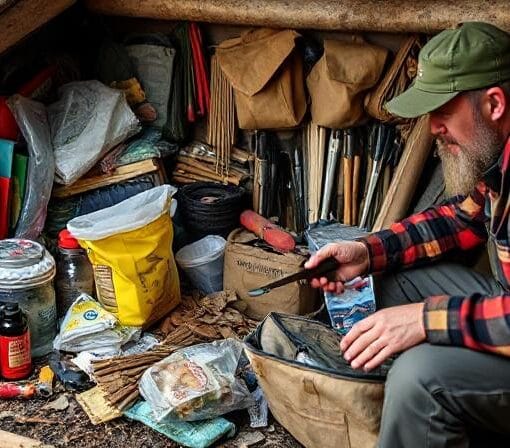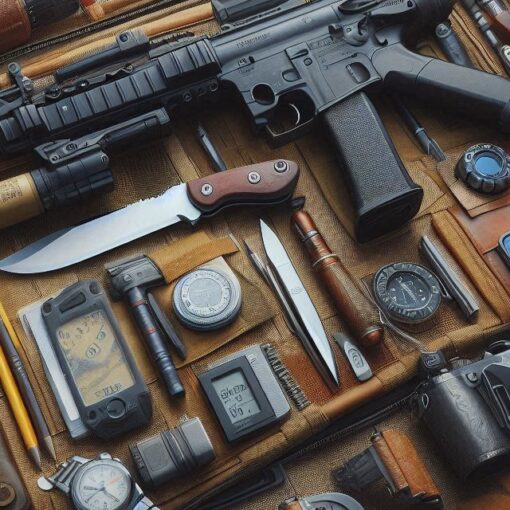Top Takeaways and Key Concepts
- Stockpile essential trade goods like canned food, water, blankets, and batteries for crisis bartering.
- Trade practical skills such as cooking, repairs, or first aid when supplies run low.
- Match trades to people’s needs by learning what others value before making an offer.
- Keep items clean and usable to increase their value and trust during trades.
- Build relationships before bartering to create fair, reliable trading partnerships in emergencies.
Summary of This Article
This article explains how bartering becomes a valuable survival tool when money loses its value in emergencies. It emphasizes trading essential goods like food, water, tools, and hygiene items to meet basic needs. Beyond supplies, personal skills such as cooking and repairing equipment can be powerful trading assets. The article stresses understanding what others need, building trust, and staying fair to maintain good relationships. With creativity and preparation, bartering can help people survive and even build stronger community connections during tough times.
Short Video Version of this Article
Think about this: things have gotten a little crazy. Your neighbor’s cat is looking at you like you’re the last piece of pizza on Earth. And oh my, the store is out of food! What do you do?
You might be thinking about how to stay alive, right? You might be able to use bartering to get out of this crazy position. It’s like trading Pokémon cards, but instead of shiny Charizards, you’re trading items that can genuinely assist you.
Please Note: This post may contain affiliate links. If you click one of them, we may receive a commission at no extra cost to you. As an Amazon Associate, I earn from qualifying purchases.
So what is worth its weight in gold, or maybe just canned beans, when circumstances become tough? First, think about food. Canned foods are fantastic because they don’t go bad quickly. Those extra cans of soup or vegetables could be worth their weight in gold!
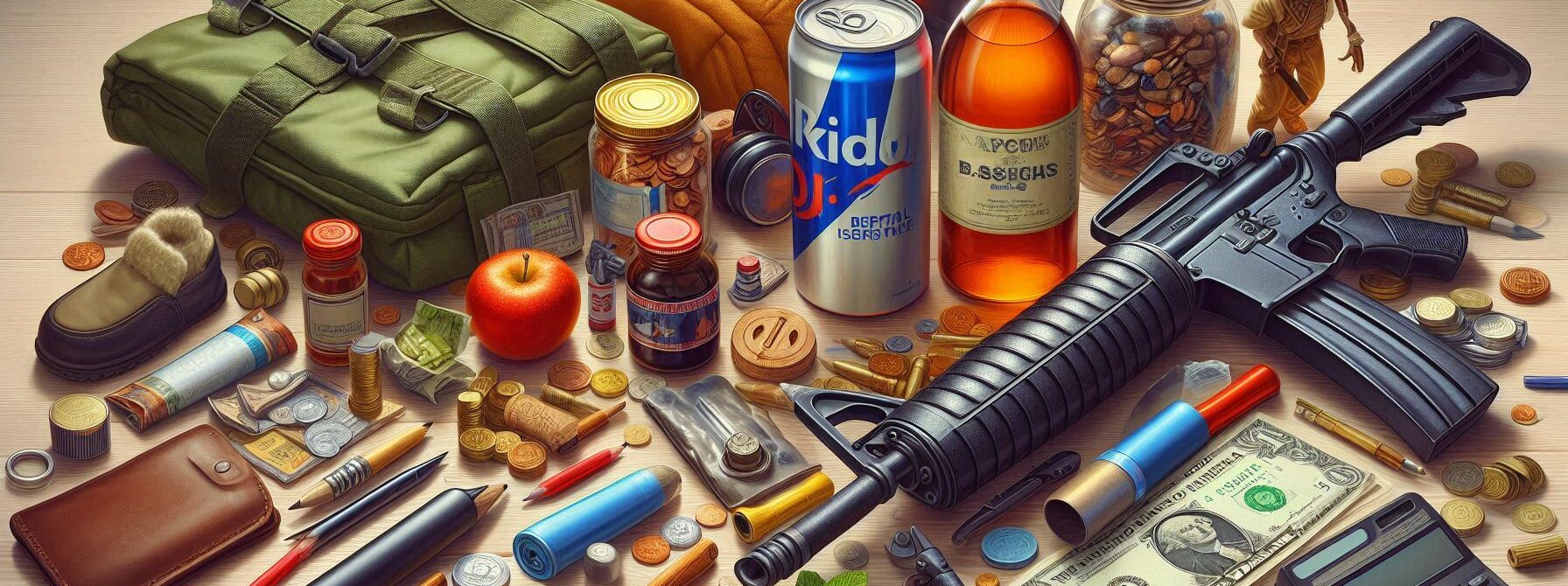
You shouldn’t forget other things as well. You might have some warm blankets or even batteries laying around. When it gets cold outside, people adore warm blankets. And what about batteries? They keep radios and flashlights working, which is very useful in an emergency.
You can even exchange skills. Are you a good cook? Someone else might have extra food and need a nice meal provided for them. You may make something tasty while they give you their stuff.
Being smart and using your imagination is the key. Pay attention to what people need most and what you can do to help them. You never know when it will be useful to trade. Just keep your cool and utilize your imagination; it could save the day!
The Art of Bartering
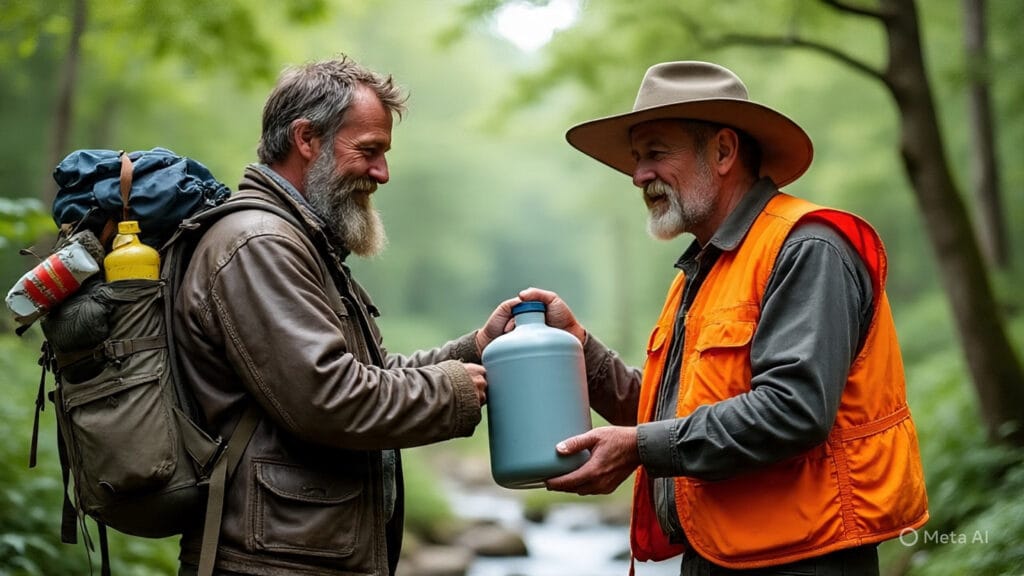
You want to know what bartering is? It’s like giving away things or services without using money. Think of it as a fun method to trade things right away. I’ll offer you my secret chili recipe if you give me a loaf of bread. Warning: it may have too many beans!
But here’s the thing: you need to know how to barter. You can’t just go up at your neighbor’s door with a half-eaten granola bar and expect them to give you their toilet paper. Nope! You need to be smart about what you have that other people genuinely want.
People who are good at bartering know their audience well. If you’re talking to someone who loves gardening, fresh seeds can be worth more than gold! Think about how happy they’d be to get something for their yard. Before making an offer, always find out what individuals need. It’s like getting a good look at your opponent before a chess game.
Think about what you have at home that other people might need. More tools? A neat book? Maybe even some cookies you prepared yourself? Those would be amazing swaps!
Bartering can be a fun way to get what you need when times are bad. It’s also wonderful when things seem a little off to get people together. Just remember to be nice and fair; everyone wants to feel good about the exchange!
Food and Water: The Essentials
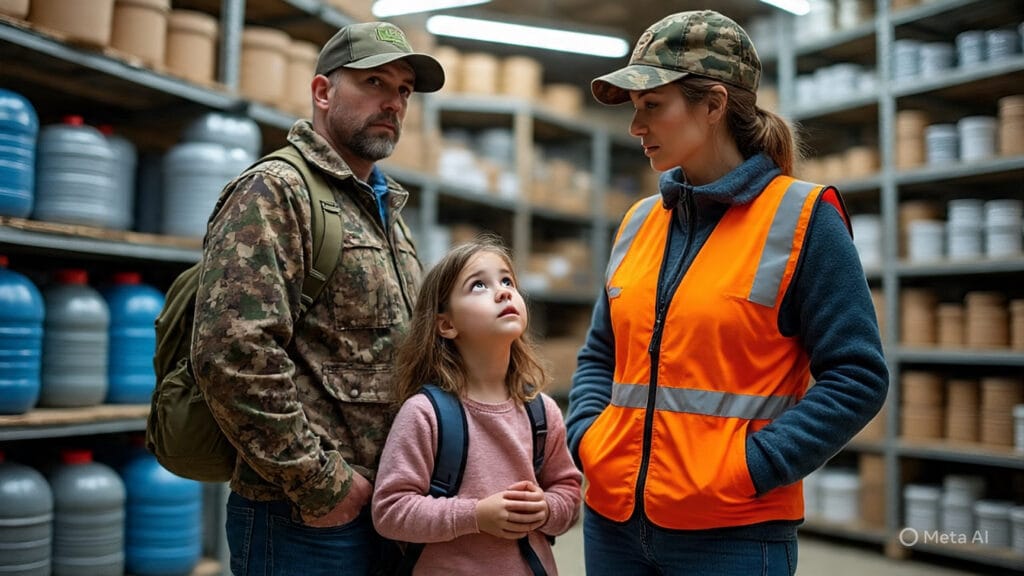
Let’s be real: food and water are the biggest stars in bartering. Nobody wants to trade away their last granola bar unless they’re getting something amazing in return—like a lifetime supply of chocolate. I mean, who wouldn’t want that?
Canned goods are perfect for trading because they can last forever. Well, almost forever—unless that one friend decides to eat expired tuna. Yikes! When things get tough, having extra cans of soup or veggies could make you the most popular person on your block. It’s like being the only one who brought snacks to movie night. Everyone loves snacks!
Now, let’s talk about water. If you’ve got clean drinking water while everyone else is scrambling for those bottled brands labeled “emergency,” wow! You’ve hit the jackpot! Just remember containers though. Offering someone a gallon jug filled with water without anything to carry it home in isn’t going to win you any friends. It’s kind of like giving them a big gift but forgetting the wrapping paper.
Think about what people really need when times get tough. Food and water are at the top of that list, always! Being able to share what you have can bring smiles and help everyone feel better during hard times. Plus, it builds connections with others—it’s nice knowing we can rely on each other, right? So stock up on those goodies and keep an eye out for what might be useful for trading later!
Tools and Survival Gear
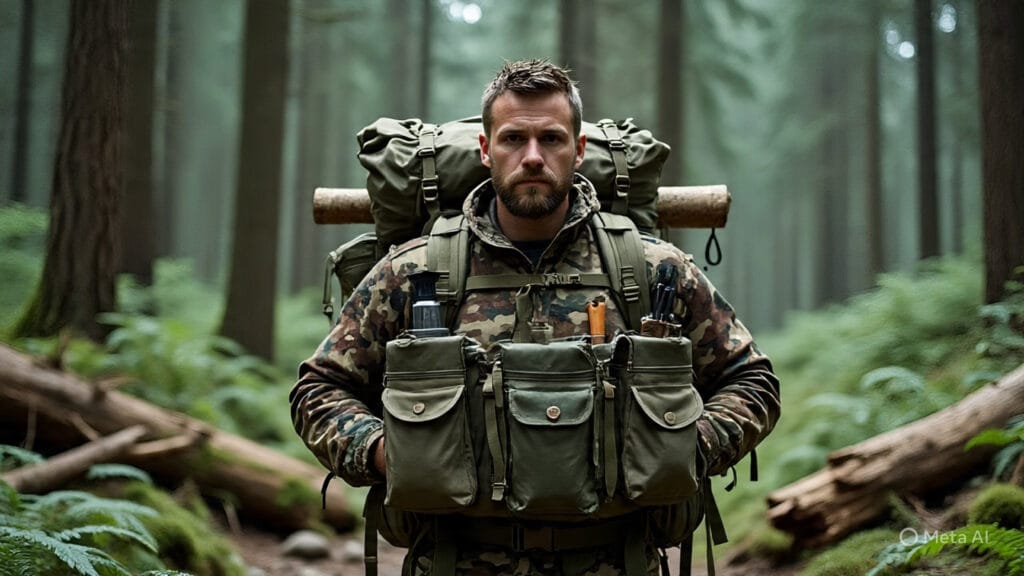
Next up on our barter list: tools and survival gear! Imagine this—you’re out there trying to build a shelter with just your bare hands. Trust me, that doesn’t end well. A good multi-tool can really save the day! It’s like having a superhero in your pocket.
Tools are super useful for yourself but also really wanted by others. People might need them for repairs or building projects. Honestly, if I had a dollar for every time I borrowed my neighbor’s hammer… well, I’d be rich enough to buy all the snacks!
Don’t forget about items like flashlights and batteries. When darkness falls during an emergency—literally—you’ll want something better than your smartphone flashlight app. That thing dies faster than my motivation on Monday mornings! Having a reliable light source can make all the difference when you’re trying to find your way around.
Think about what you have that could help others too. Maybe you’ve got extra rope or duct tape? Those things are gold in tough situations! Sharing tools and gear helps everyone stay safe and makes you look like a total rock star in the eyes of your neighbors.
So stock up on those handy items. You never know when someone might need them, or when you’ll need something in return! Just imagine being that person who has what everyone else wants. Feels pretty good, right?
Hygiene Products: The Unsung Heroes
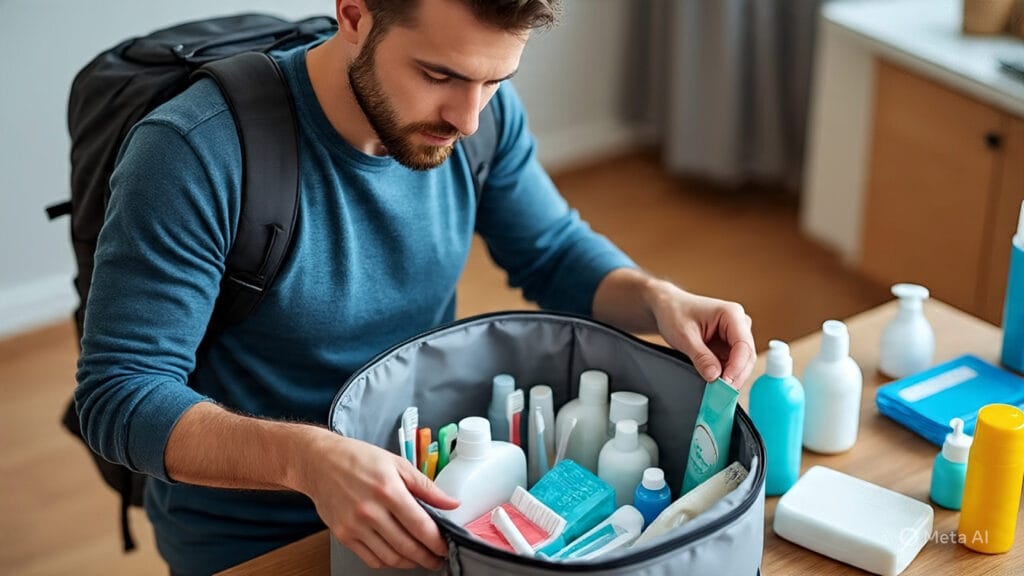
Now let’s chat about hygiene products—the unsung heroes of any crisis situation! When toilet paper becomes as rare as unicorns, having extra rolls can make you a local legend. Imagine people whispering your name around the campfire, “Did you hear? They’ve got toilet paper!”
I once found myself stuck camping without enough wipes. Total rookie mistake. Let me tell you, I appreciated cleanliness more than ever before. It was like living in a wild adventure movie, but not the fun kind. Soap, toothpaste, and sanitary supplies will become super valuable when folks realize how important personal hygiene is—even when things get tough.
Think about it: no one wants to feel dirty or uncomfortable, right? Keeping clean helps everyone stay healthy and happy. You might even start a little bartering business with those items!
By the way, don’t forget about feminine hygiene products. They’re crucial for those who need them but often overlooked by others preparing for emergencies. Imagine someone really needing them and finding out they’re nowhere to be found—yikes!
So stash away some extra hygiene goodies next time you’re shopping. You never know when they could save the day or help someone else out big time! Just think how great it feels to lend a hand (or roll of toilet paper) when it counts!
Skills: Your Best Asset
Don’t forget about skills! Physical things are important for trading during times of crisis. You might be really good at mending vehicles or cooking (even if it’s only making instant ramen). Skills can sometimes be more valuable than things since they assist other people stay alive too!
Think about selling services like teaching people how to cook with what little food they have left or how to defend themselves. This might lead to great trades!
On the other hand, sharing what you know actually draws people together. We all need that connection, even when things are hard. It feels like a warm hug for the soul. Picture yourself sitting around a campfire with friends or even strangers, telling stories and giving each other advice. That kind of connectedness may make everyone feel better.
Have fun trading! It’s a lot of joy to connect with people while making sure everyone gets what they need.
That’s it! You now know what wonderful things to trade in an emergency. Being ready is what makes the difference between doing well and merely getting by. It doesn’t matter if you’re trading food or helpful skills with neighbors or strangers; you need to have something to offer.
And speaking of doing well, look for hidden treasures in the things you use every day around your house. You never know when anything will be really useful when it’s time to exchange. Old tools, spare batteries, or even that fancy coffee machine you don’t use much could be really useful in the proper situation.
Just think about how good it feels to help yourself and others at the same time. It’s a win-win! So prepare your snacks and be ready to trade your way through any problem that comes your way!
Frequently Asked Questions
1. What is bartering and why is it useful in an emergency?
Bartering is the act of trading goods or services without using money. In emergencies when stores are closed or cash loses value, bartering becomes a practical survival strategy. It allows people to exchange items they have for things they urgently need, helping communities stay prepared and support one another.
2. What items are best to barter during a crisis?
The most valuable barter items are essentials like canned food, clean water, batteries, flashlights, warm blankets, and hygiene products. These meet basic survival needs and are always in high demand when supplies are limited.
3. Can skills really be used for bartering?
Absolutely! Skills can be even more valuable than physical items. Services like cooking, repairing tools, gardening, medical aid, or even teaching self-defense can be traded for food, supplies, or other help. Useful skills never run out—unlike canned beans!
4. How do I know what someone will trade for?
Successful bartering starts with understanding what others need. Pay attention, ask questions, and observe what people are short on. Matching your offer to someone’s problem builds trust and increases your chances of a fair trade.
5. How do I avoid getting ripped off while bartering?
Know the value of what you’re trading and inspect items before accepting them. Keep your items clean and organized to show reliability, and don’t be afraid to walk away if a deal feels unfair. Bartering works best when both parties benefit.
6. Why are hygiene products so valuable in trades?
Hygiene items like soap, toilet paper, toothpaste, and feminine products are rarely thought about until they run out—then suddenly they’re priceless. These items help prevent illness, boost morale, and quickly become high-demand barter goods in long-term emergencies.
7. How can I prepare now for future bartering situations?
Start building a small stockpile of trade-worthy items and practice basic skills like first aid, cooking, or tool repair. Build friendly relationships with neighbors now—trust is the foundation of strong barter networks during crises.
Suggested Resources:
Barter Economy Explained
https://www.investopedia.com/terms/b/barter.asp
How To Build a Bug Out Bag
https://www.theprepared.com/guide/how-to-build-a-bug-out-bag/
The Importance of Water Storage
https://www.survivopedia.com/water-storage-safety/

Kevin Collier is a seasoned outdoor enthusiast and writer for Trekbug.com, specializing in outdoor adventures, survival strategies, and prepping insights. With a deep love for nature and a commitment to self-sufficiency, Kevin empowers readers to embrace the wilderness confidently. He shares valuable tips, practical techniques, and inspiring stories, helping both novice and experienced adventurers develop essential skills for surviving and thriving in the great outdoors.



